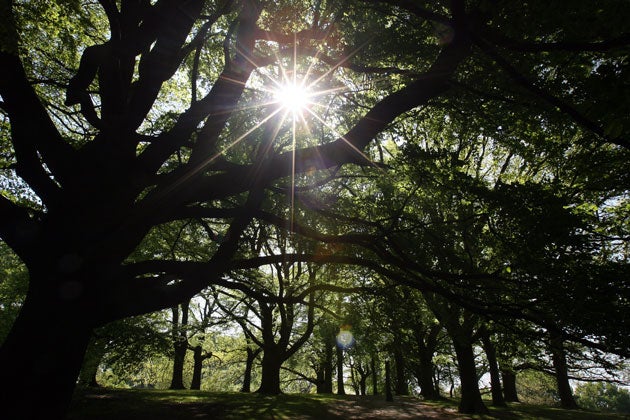Your support helps us to tell the story
From reproductive rights to climate change to Big Tech, The Independent is on the ground when the story is developing. Whether it's investigating the financials of Elon Musk's pro-Trump PAC or producing our latest documentary, 'The A Word', which shines a light on the American women fighting for reproductive rights, we know how important it is to parse out the facts from the messaging.
At such a critical moment in US history, we need reporters on the ground. Your donation allows us to keep sending journalists to speak to both sides of the story.
The Independent is trusted by Americans across the entire political spectrum. And unlike many other quality news outlets, we choose not to lock Americans out of our reporting and analysis with paywalls. We believe quality journalism should be available to everyone, paid for by those who can afford it.
Your support makes all the difference.A new generation of nuclear power stations could be built in flood-risk or "environmentally protected" areas, under proposed rules set out by the Government today.
Green safeguards are listed among "discretionary" criteria ministers intend to use to decide where to put the controversial reactors - not those that would instantly rule out a site. Prime Minister Gordon Brown is believed to want up to eight new reactors as part of a global "renaissance of nuclear power" to help end reliance on fossil fuels.
Under the Strategic Siting Assessment system proposed by Business Secretary John Hutton, nominations for "credible" sites backed by nuclear firms will be invited early next year. They would then be judged against a list of criteria before being put forward for planning permission - possibly using a controversial planned fast-track approach for major projects.
Sites at risk of earthquake or near heavily populated areas would be instantly ruled out according to the planned rules - due to be finalised in the coming months after consultation. But concerns of flood risk, coastal conditions and "environmentally-protected" status would be considered "less absolute" and could be overridden.
They would be used to "to form a balanced view of the site's suitability" for inclusion on a list of "strategically suitable" venues due to be published in 2010. The Government hopes building work could start as early as 2013, with the first electricity being produced four years later.
Mr Hutton said: "Nuclear power is an essential part of our future energy mix. And, alongside a ten-fold increase in renewables and investment in clean coal technology, it will help wean us off our dependency on oil and protect us against the politicisation of energy supplies. "So, we must do everything we can to remove any remaining barriers and open up the UK as the most attractive place in the world to invest in nuclear power. The strategic siting assessment is the next step towards a Nuclear National Policy Statement. This will help to speed up planning applications while making clear that safety and engagement with local communities are key."
Details of a planned environmental assessment of the nuclear new-build project were also published today, which showed it would examine "the likely significant effects on the environment including biodiversity, population and human health, fauna and flora, soil, water, air, climatic factors, material assets, cultural heritage including architectural and archaeological heritage and landscape."
There will also be a Habitats Regulations Assessment to monitor the potential effects on areas protected as part of the European Union's Natura 2000 project. The Department for Business dismissed reports earlier this month that it had already drawn up a list of sites alongside existing reactors - including Sizewell, Hartlepool, Heysham, Dungeness, Hinkley Point, and Bradwell - as the most suitable places.

Join our commenting forum
Join thought-provoking conversations, follow other Independent readers and see their replies
Comments